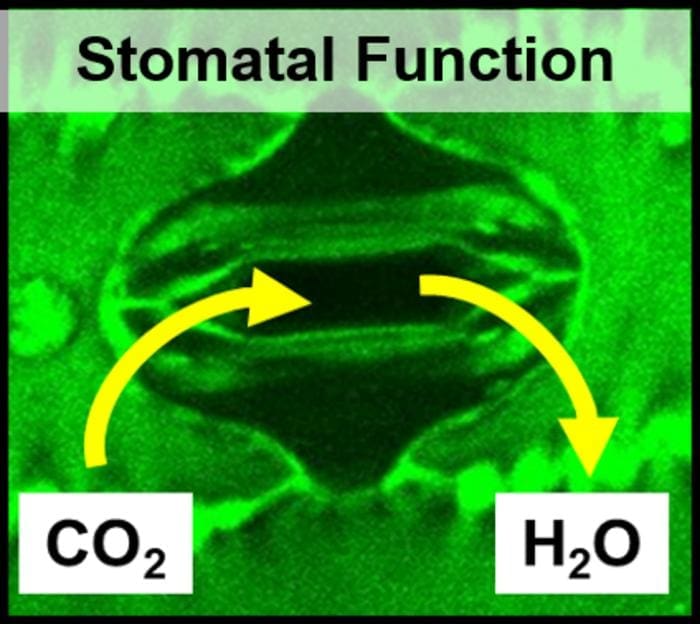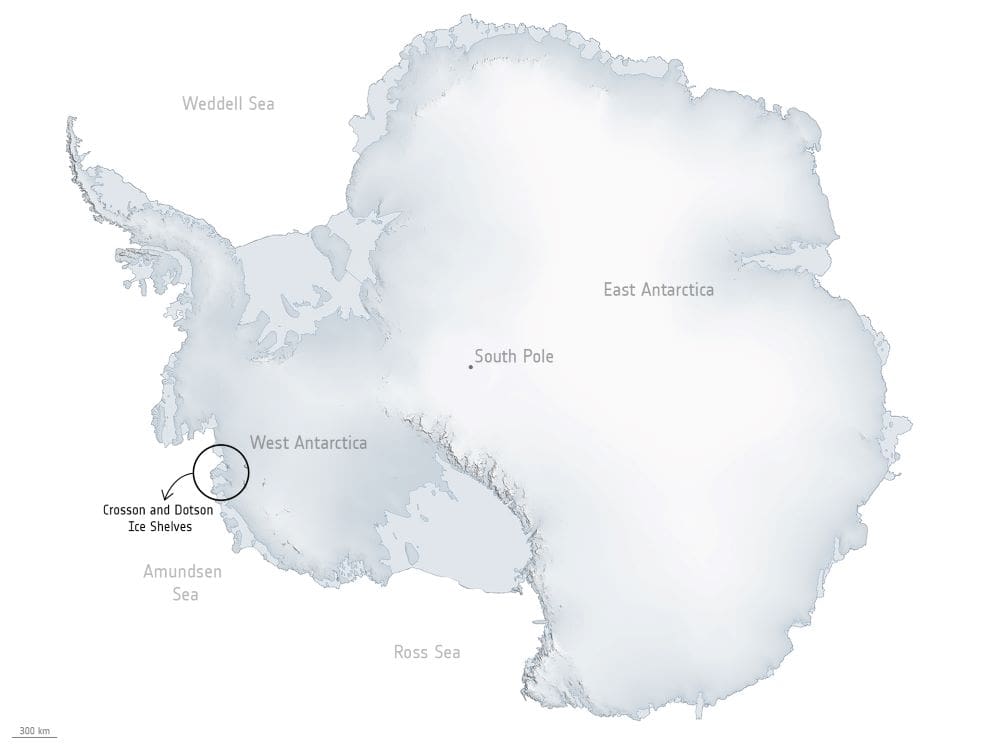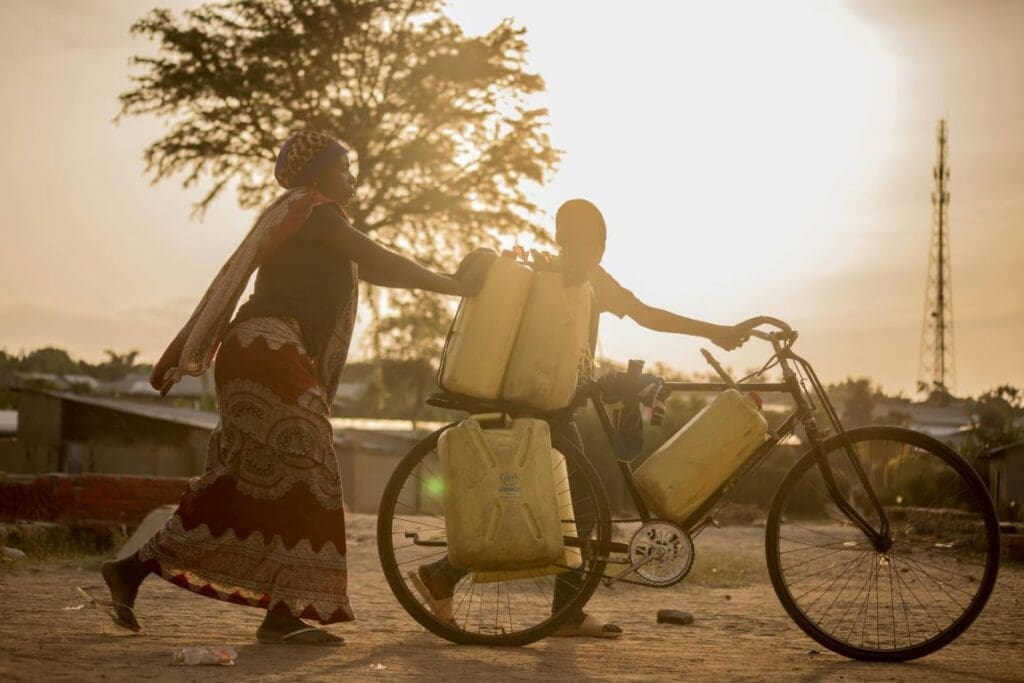Drought stress has been a major challenge for crop production globally, a problem exacerbated by climate change.
For over a century, researchers have aimed to enhance water use efficiency (WUE) in plants, a trait that helps crops conserve water and avoid drought stress. However, this often results in reduced productivity when water is plentiful.

In a breakthrough, the Center for Advanced Bioenergy and Bioproducts Innovation (CABBI) has made significant strides in improving WUE in bioenergy crops without sacrificing yield. This work is detailed in two new studies published in the Journal of Experimental Botany. CABBI, a Bioenergy Research Center funded by the U.S. Department of Energy, has utilized genetic engineering to improve WUE in C4 crops, such as sorghum and sugarcane, essential for the development of a sustainable bioeconomy.
In the first study1, CABBI researchers reduced the water loss in sorghum by decreasing the number of stomata, or pores, on the leaves. This improved WUE without impacting photosynthesis or biomass production. By inserting a gene into the plants, the team altered stomatal density and improved water retention while maintaining crop growth.

“With C4 species, we think we can get a free lunch: We can have improved water use efficiency without having to compromise on how well the plant grows when it does have enough water. And that’s a special case,” said Andrew Leakey, CABBI Director and lead researcher on the studies.
In the second study2, the team found that reducing stomatal density in sugarcane and other C4 crops led to the pores opening wider, partially offsetting the expected WUE improvements. This discovery offers a new target for further enhancing plant efficiency through genetic engineering.
These findings are crucial for maximizing bioenergy feedstock production, especially under conditions of limited water supply, Leakey noted. The research could pave the way for crops that are better suited to mitigate the effects of climate change.
“It provides an exciting opportunity for new scientific discovery and engineering strategies,” said CABBI Postdoctoral Researcher Daniel Lunn, primary author of the sugarcane study.
The studies included major contributions from researchers at the University of Nebraska and the University of Florida. John Ferguson, a former Postdoctoral Researcher at the University of Illinois Urbana-Champaign, was the lead author of the sorghum study.
C4 crops, such as sorghum and sugarcane, make up a small percentage of all plant species but are increasingly important for food, fuel, and fiber production. These crops, unlike most others, concentrate CO2 inside the leaf before photosynthesis, making them more efficient and less prone to trade-offs between WUE and productivity. CABBI’s new research aims to leverage this natural advantage, pushing the boundaries of WUE without impacting crop yield.
Groundbreaking work on miscanthus, another C4 bioenergy crop, is also underway at CABBI. The team is sequencing its genome and developing gene-editing techniques to apply this engineering strategy to improve its WUE. Miscanthus is an emerging perennial feedstock crop with high potential for carbon sequestration.
“Overcoming water limitations to crop production is really very central to achieving our mission of underpinning a profitable, sustainable, and resilient bioeconomy,” said Leakey.
This research could have wide-reaching implications for agriculture. By developing crops that require 10 to 20 percent less water, the CABBI team could potentially expand rainfed agricultural regions and help farmers maintain yields in drought-prone areas, a growing concern as climate change intensifies.
“Part of what we’re trying to do here is maintain increased productivity in times and places where water supply is inadequate,” Leakey added.
Journal Reference:
1. Ferguson JN, Schmuker P, Dmitrieva A, Quach T, Zhang T, Ge Z, et al. ‘Reducing stomatal density by expression of a synthetic epidermal patterning factor increases leaf intrinsic water use efficiency and reduces plant water use in a C4 crop‘, Journal of Experimental Botany erae289 (2024). DOI: 10.1093/jxb/erae289
2. Daniel Lunn, Baskaran Kannan, Amandine Germon, Alistair Leverett, Tom E Clemente, Fredy Altpeter, Andrew D B Leakey, ‘Greater aperture counteracts effects of reduced stomatal density on water use efficiency: a case study on sugarcane and meta-analysis’, Journal of Experimental Botany erae271 (2024). DOI: 10.1093/jxb/erae271
Article Source:
Press Release/Material by CABBI | University of Illinois Urbana-Champaign
Featured image credit: Azhar feder | CC BY-SA 3.0 via Wikimedia Commons

![Image: Jowar [sorghum] bud at initial stage (s. climate, science, research)](https://b3303905.smushcdn.com/3303905/wp-content/uploads/2024/09/Jowar_Sorghum-muser-res-1-e1756758879349.jpg?lossy=2&strip=1&webp=1)


